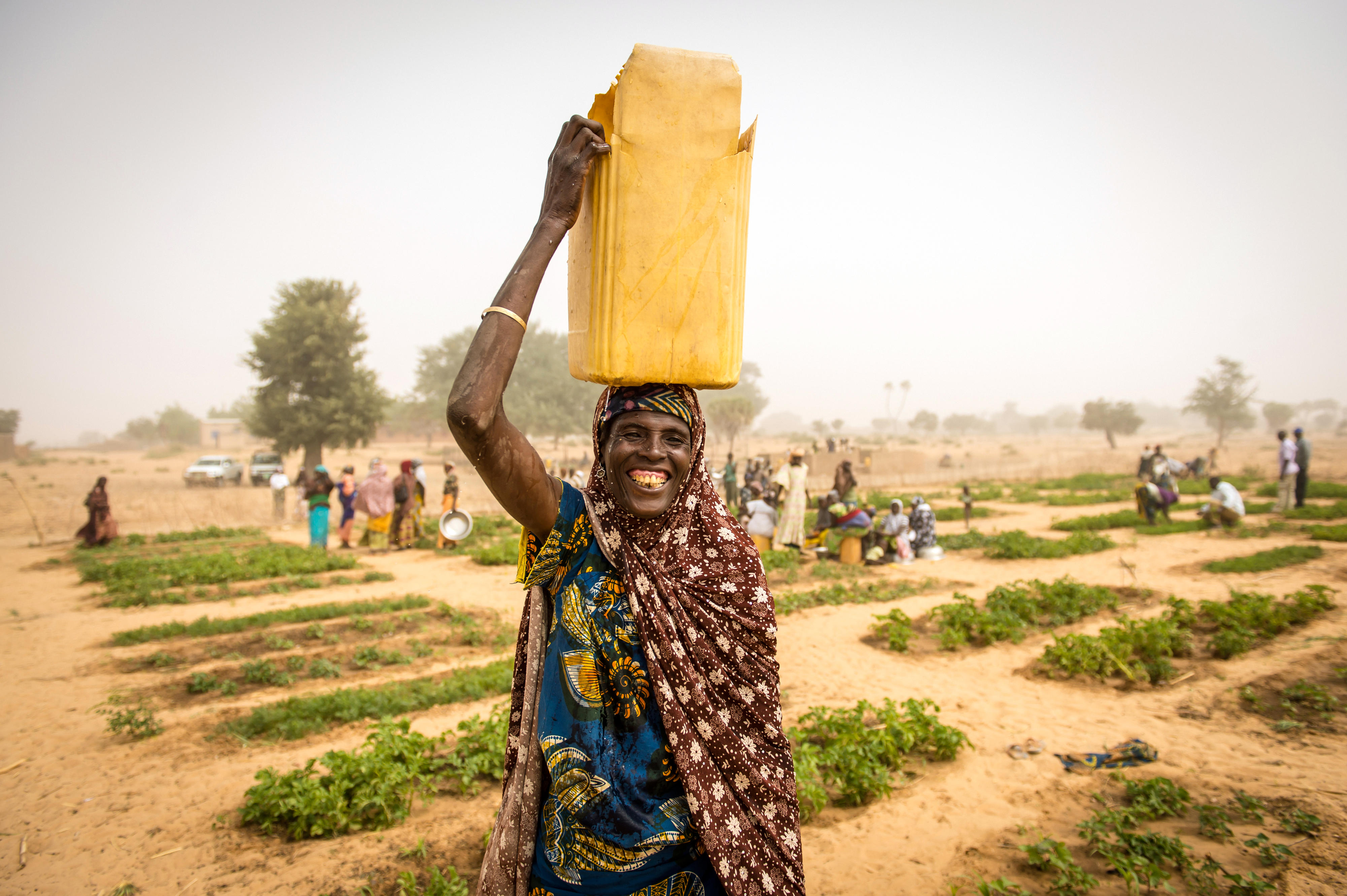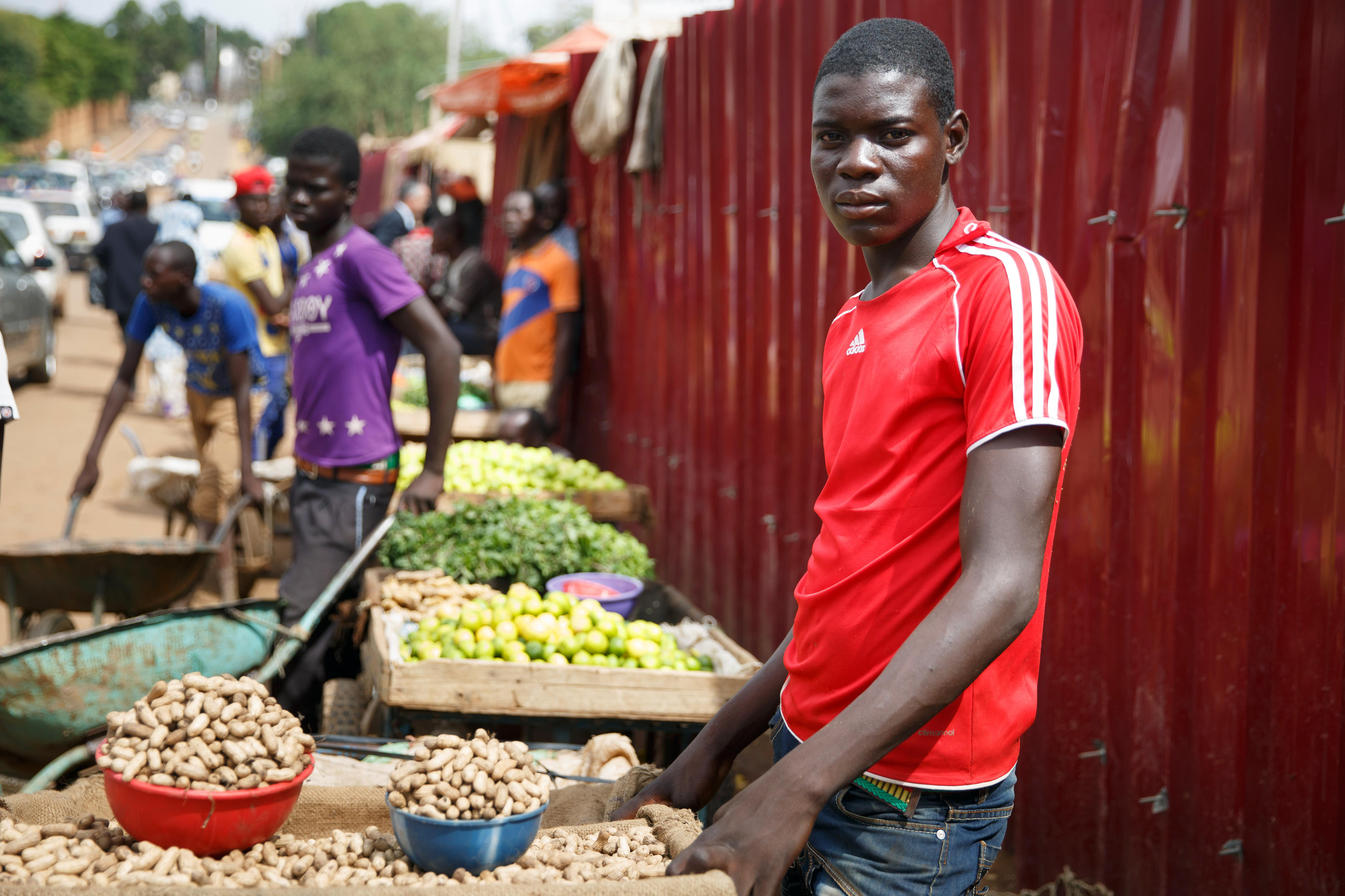Woman in front of a community garden in Maradi, Niger
Copyright© GPA Photo Archive, via flickr, CC BY-NC 2.0
Economic situation Agriculture the dominant industry
Despite geographical conditions that are unfavourable for farming, the Niger’s economy is largely based on agriculture. According to World Bank data, the agricultural sector accounts for about 40 per cent of gross domestic product. A large part of the population is directly dependent on agriculture for a living – which means being reliant on rainfall, which is very irregular. Strong population growth, the overuse of agricultural land, and droughts and floods have caused large numbers of people to be affected by hunger in the last few years. In 2021, roughly one fifth of the population of approximately 25 million people experienced hunger; 2.7 million people needed humanitarian assistance.
The large proportion of people working in the informal sector of the Niger’s economy is a considerable problem: the vast majority of micro and small businesses merely serve to meet their proprietors’ own needs and therefore cannot contribute anything towards public revenues.
Market in Niamey, the capital of the Niger
Mining
The government is trying hard to put the economy on a broader footing. To this end, it is encouraging the establishment of industrial businesses and is privatising state-owned enterprises. The main focus of these efforts is on mining. The Niger is one of the world’s biggest producers of uranium and also has deposits of oil, coal, gold, iron, nickel, copper and phosphate.
Uranium mining is largely in the hands of foreign companies, and so far the level of government monitoring has been inadequate. The result has been considerable damage to both the environment and people’s health. What is more, violent conflicts in connection with uranium mining have been a repeated occurrence in recent years. Uranium deposits are to be found in the north of the country. The people living there – mainly Tuareg – are demanding a greater say in how the land is used as well as a larger share of the revenue generated by uranium exports.
Budget situation
The Niger government generates very little revenue, and is therefore heavily dependent on donors. In 2021, there were around 10.5 million people living on less than 1.90 US dollars a day. In addition, the very high levels of spending on security limit the scope for investment in social areas such as education.
As at: 05/05/2023

